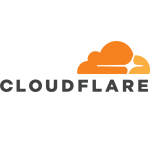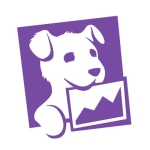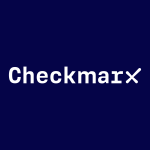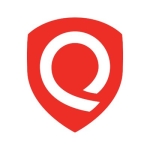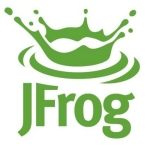We use the CSPM (Cloud Security Posture Management) module that provides good visibility across workloads. The solution in general provides visibility, compliance, and governance across all of our workloads.
Prevention along with Prisma Cloud's detection capabilities can be leveraged by deploying Defender on your workloads. Additionally, out-of-the-box rules, like compliance rules, runtime rules, or vulnerability rules can be further created to secure any cloud-native workload.
You can identify any access details and over-privileged permissions using the CIEM (Cloud Identity and Entitlement Management) module by running IAM queries.
You can ingest your Flow Logs to Prisma Cloud and further analyze them using the network queries. You get a detailed view of network flow, configuration details of each resource, mapping of how resources are connected to each other, etc.
The cloud identity security and cloud network security capabilities are very helpful.
Prisma Cloud helps you identify vulnerabilities and misconfigurations in your code by integrating with your VCS (Version Control System) for example GitHub repository. You will get an overview page as well as a detailed view based on the type like vulnerabilities, IAC misconfigurations, secrets, licenses, etc. There are different options available. If you want full visibility, you can also go to the supply chain graph and see these details. It helps in identifying these risks. It also shows the package dependencies that need to be mapped. In a case where a package is dependent on something, both are provided so that you can see the vulnerabilities. That's a good feature. You can further integrate security into our CI/CD pipeline like Jenkins.
Prisma Cloud provides security that spans multi and hybrid cloud environments. It provides security across AWS, GCP, Azure, Oracle, and Alibaba. We usually engage with customers with workloads across multiple clouds and Prisma Cloud is a good fit for these environments.
The comprehensiveness of Prisma Cloud for protecting the full cloud-native stack is great. It's a single tool that does everything. When Prisma started off, it was more of a CSPM and CW tool. Now, they have also expanded towards Code Security, which is also increasing. It covers a lot of features in terms of its CNAPP (Cloud-Native Application Protection Platform) capabilities and yet the ease of use is exemplary. It offers great automation as well. It's not just about security, it is also about automating these procedures as much as possible. For example, if you want to deploy Defender, you get auto-defend rules.
It supports taking a more proactive approach to Cloud Security. We can modify existing policies or create policies if required and get alerted if there are any security violations. It can be further integrated into third-party solutions, by alerting channels like Slack.
Prisma Cloud provides the visibility and control you need regardless of how complex or distributed your cloud environments become. With it, you can view all of your assets on your cloud account. You can even filter. There are different filters based on the cloud providers, and from there you can filter based on the service that you are looking at. Those are grouped in a particular order so that you can go to those resources. For example, if I want to check for an AWS EC2 instance, once I go there, I can select that instance name and get the config details as well. There is an audit trail if I want to see any changes that have been detected in these resources. It gives me complete visibility to the most granular level.
Prisma Cloud provides us with a single tool that protects all of our cloud resources and applications without having to manage and reconcile these other security and compliance reports. There is a compliance section. You can even have compliance available out of the box. You can filter the alerts based on the compliance rules. You can further generate a report for a compliance standard by creating an alert rule. You can add your email address and you can get your weekly report sent to you. All of those things are available and customizable. You can do a deep dive for your workloads, as in your VMs, your container, serverless, etc.
Prisma Cloud provides risk clarity at runtime and across the entire pipeline showing issues as they are discovered during the build phases. If it's colored in red, it indicates there are serious alerts. If it's green, it means it's all good. That's a high-level overview of visibility. However, it also indicates all the risks and categorizes those.
Prisma Cloud helped to reduce runtime alerts. You can even create runtime rules. If you want to apply it globally, you can have it for all of your workloads. Once you create these, you will also get alerts for all those runtime rules that you have created for your workloads.
So far, we've reduced investigation times. The visibility on alerts helps you investigate more easily and see details faster. It helps you investigate similar alerts and take action accordingly.
It is one solution that has multiple capabilities. It's not just a CSPM (Cloud Security Posture Management); it has CWP (Cloud Workload Protection), CCS (Cloud Code Security), CNS (Cloud Network Security), and CIEM (Cloud Identity and Entitlement Management) capabilities. Since it's all under one product, we don't have to buy multiple solutions. In that sense, we have saved money.
We could not use the data security module. It's not available to our Indian customers.
The automation must continue to become much smoother. There are automation capabilities, however, there are certain challenges with that as well. The approach we generally take is we have to raise a support ticket and have multiple calls with the support engineers. That takes some amount of time. If it's a POC, proof of concept, or something like that is still fine. However, if it is the customer's production workloads that we are testing, that delays that entire implementation. Errors need to be resolved or there has to be faster support for these aspects.
At one point, one of our customers was looking for a compliance standard, which is not available out of the box on Prisma Cloud. Maybe not all standards are covered at this point.
When we face challenges and need to raise a support ticket, it takes time for them to get back to us and investigate the issue. We'd like the process to happen faster. We'd also like to have a dedicated source of support. If you have five or six consecutive issues, you have to follow up across five or six separate tickets. It would be easier if we just had one touchpoint that could manage multiple requests.
I've been working with the solution for close to two years.
I've dealt with technical support, They are good, however, the turnaround time is slow. When you are working on a POC, it's fine, however, when you begin to deal with production workloads, issues need to be resolved faster.
We're an implementation partner.
It took me some time, first of all, to understand the product. However, that is important. You need to understand the product, and then get the value. There are different aspects of the product that have different scanning times. Once you onboard, it takes a certain time to get all the details. Also, there will be certain alerts that might not be default alerts. After a certain amount of time, you might have to funnel them. Or, you might want to narrow down to those alerts which are important to you. After that, you'll begin to see the actual value added and to get there, it will definitely take a certain amount of time.
I'd rate the solution nine out of ten.






